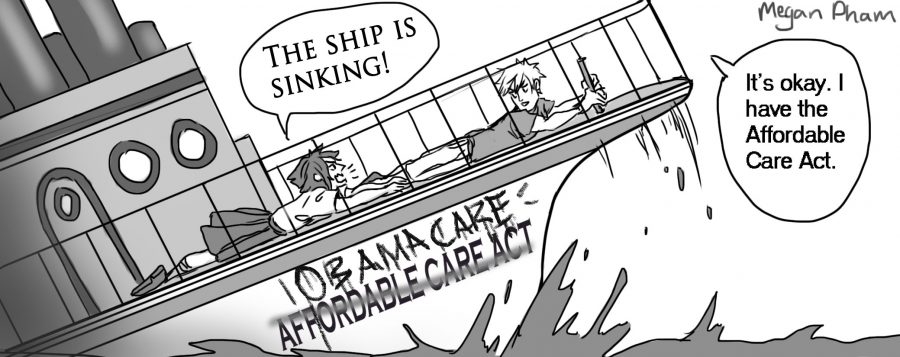Trump tries to revise the Affordable Care Act
March 21, 2017
President Donald Trump outlined many controversial goals for his time in office during his campaign. One of these many goals includes repealing the Affordable Care Act (ACA) passed under President Barack Obama, also known as Obamacare. He has now begun to move forward on this agenda, and the fate of the Affordable Care Act is unknown.
If Trump wants to reunite the nation as he stated in his acceptance speech, getting rid of the only affordable healthcare that many low-income families rely on will not help, showing moderate favoritism towards middle- and upper-class families, who can often afford more common healthcare options.
The main problem many are seeing with this move is that no definitive replacement has been outlined. This means that anybody who currently depends on the Affordable Care Act will lose their healthcare until a replacement is created and passed, a process that Trump said could take until some time in 2018.
“[The replacement plan] is in the process, and maybe it’ll take till sometime next year, but we’re certainly going to be in the process,” Trump said in an interview with Fox News.
The undetermined and varying replacement timeline has been a source of constant controversy over whether the removal of the Affordable Care Act is a good idea or a bad idea. Some say that a publicly announced and detailed replacement plan is absolutely required to help people who will lose their healthcare while others say that the ACA has cost taxpayers too much and should be repealed as soon as possible, regardless of any replacement plan.
So, is destroying the Affordable Care Act a good idea? Considering that over 32 million people rely on the ACA as their only healthcare and the fact that we haven’t seen any replacement plan detailed, removing it could end up hurting millions.
Repealing the ACA could also end up costing taxpayers much more in the long run. The point of the Affordable Care Act is to provide government-subsidized healthcare to aid those who cannot afford full coverage by private healthcare options. If they can no longer afford healthcare, government-assisted or else wise, the mortality rate could spike dramatically because these people have no way to get them medical assistance.
Those affected will most likely only visit the ER once a situation has become extreme, requiring upgrades for hospital emergency rooms and staffing provided by government grants.
While people may be upset with it now, it is better to go with what is currently in place than risk digging a deeper hole not only for the economy, but society entirely, with a plan that hasn’t even been announced.

